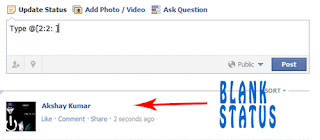ScienceDaily (Nov. 30, 2011) — Research conducted by a pair of physicians at Boston University School of Medicine (BUSM) and Boston Medical Center (BMC) has led to the development of a test that can help diagnose membranous nephropathy in its early stages. The test, which is currently only offered in the research setting and is awaiting commercial development, could have significant implications in the diagnosis and treatment of the disease. Currently, the only way to diagnose the disease is through a biopsy.
The pioneering work is being led by Laurence Beck, MD, PhD, assistant professor of medicine at BUSM and a nephrologist at BMC, and David Salant, MD, professor of medicine at BUSM and chief of the renal section at BMC.
Over the past four years, the Halpin Foundation has contributed more than $350,000 to Beck to investigate the genetics and molecular mechanisms behind membranous nephropathy. Most recently, Beck was awarded a $50,000 grant from the Foundation to further his efforts.
Membranous nephropathy is an autoimmune disease caused by the immune system attacking the kidneys, resulting in the thickening and dysfunction of the kidney's filters, called glomeruli. When antibodies attack the glomeruli, large amounts of protein in the urine are released. In 2009, Beck and Salant identified that the antibodies were binding to a protein in the glomeruli. They determined that the target was a protein called PLA2R, or phospholipase A2 receptor, and these findings were published in the New England Journal of Medicine.
"For the first time, a specific biomarker has been identified for this relatively common kidney disease," said Beck, who is part of an international collaboration that has demonstrated that these antibodies are present in patients from many different ethnicities.
With the antigen protein identified, Beck and Salant have developed a blood test to detect and measure the amount of the specific antibodies in a sample.
Approximately one third of patients with membranous nephropathy eventually develop kidney failure, requiring dialysis or a kidney transplant. According to the University of North Carolina's Kidney Center, the disease affects people over the age of 40, is rare in children and affects more men than women. This disease is treated by high powered chemotherapy, and if successful, the antibodies go away.
"Being able to detect the presence of these antibodies using a blood test has tremendous implications about who is treated, and for how long, with the often toxic immunosuppressive drugs," said Beck.
Beck continues his research focus on the treatment of the disease by targeting the antibodies and stopping them from attacking the glomeruli.
Recommend this story on Facebook, Twitter,
and Google +1:
Other bookmarking and sharing tools:
Story Source:
The above story is reprinted from materials provided by Boston University Medical Center.
Note: Materials may be edited for content and length. For further information, please contact the source cited above.
Note: If no author is given, the source is cited instead.
Disclaimer: This article is not intended to provide medical advice, diagnosis or treatment. Views expressed here do not necessarily reflect those of ScienceDaily or its staff.
View the original article here
 RSS Feed
RSS Feed Twitter
Twitter 10:11
10:11
 Sajid Ali
Sajid Ali







